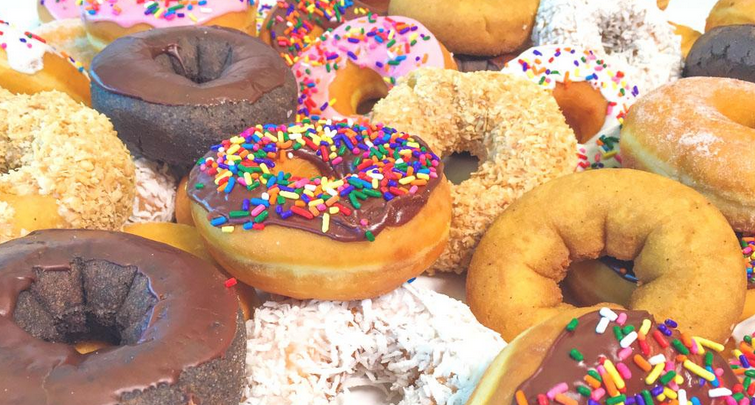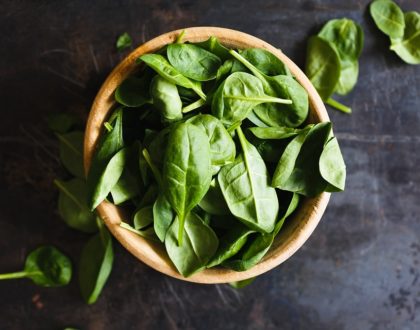6 Reasons to Never Have a Cheat Meal Again

by Abby Austin
Cheat meals used to be the highlight of my week- especially during prep for a competition! The rest of the week would start to drag as thoughts of donuts danced in my head. I tortured myself to eat squeaky clean in order to earn my one meal of unadulterated pleasure. I thought if I wasn’t “good” I was letting Amanda Latona or Ashley Kaltwasser down. What made it worse was social media glamorizing cheat meals as a part of this healthy lifestyle, with #foodporn breaking the internet.
Happily, I can say I no longer eat cheat meals. Without them, I’ve been able to maintain my level of leanness without fluctuation and have a healthy relationship with food. Unfortunately, I’ve witnessed friends and competitors not so lucky.
Diet plans that incorporate cheat meals (most infamously ‘eating clean’) tend to frame them as having important benefits – preventing you from feeling hungry, increased chance of success in the diet, and boosting metabolism. However, there is no single research study that supports this. Also, cheat meals promote a dieting mindset, which I never agree with. You are either on a strict diet or bingeing on a cheat meal.
- Cheat meals encourage rewarding healthy behavior with unhealthy behaviors. Rewarding yourself for being “good” in order to “earn” your meal is bad practice. You are taking a few steps forward, only to take a step backward. You can maintain a healthy body without going on a diet. Allow yourself unhealthy meals, but not as a response for eating healthy.
- A cheat meal implies your diet is not complete. If your diet is meeting all your needs, then there shouldn’t be a reason to deviate from it. Needing a break from your diet implies that what you’re doing is not sustainable. Whether you are living on fish and asparagus, or have a little more flexibility in your diet, there is something from your diet that is not fulfilling enough. Enter the cheat meal. As California psychologist Dr. Melanie Greenberg states, “Ultimately, you have to find something that works for the long run. It’s not what you can do – it’s what you can keep up.”
- It’s physiologically addictive. Relying on periodic indulgences to get you through the week creates an addictive relationship. If you continue to have something you are addicted to- your weekly cheat meal – it will keep your addiction going. Understanding the reason behind this addition is key. For instance, are you really craving something sweet, or is it just an emotional comfort? Addressing your relationship with food is essential for body awareness as well, to comprehend how food fuels your body.
- The meaning of a “cheat” meal is misleading. From a young age, we were all taught that cheating is bad – in school, sports, dating and dieting. Cheating implies a sin. Registered Dietitian Sondra Kronberg from the Eating Disorder Treatment Collaborative explains, “separating foods into ‘good’ and ‘bad’ categories encourages you to associate eating with guilt and shame.’ You should not feel guilty with any of your food consumption. You should be focusing on nourishing your body, not a reason to feel worse about yourself. Some women are prone to developing an eating disorder after following clean dieting and cheat meal competition prep.
- Implementing cheat meals into your diet can be a slippery slope, and lead to over-consumption. What sounds better – a double bacon burger with sea salt fries and a chocolate milkshake all in one sitting OR a Snickers every day? Snickers please! Depriving yourself of certain foods makes you think about the foods you can’t eat instead of the foods you can. The more a food is off limits, the more you will crave it. It feeds a feast and famine cycle. Instinctively, you will want to chase down food. It won’t be about enjoying the food you haven’t had all week, rather consuming all the food you can in one sitting or day. This creates a bineging habit, where you can easily overeat.
- You won’t form a healthy relationship with food. When you adopt a diet where you drastically change your way of eating – ie eating clean throughout the week then ‘cheating’ – an adaptation process needs to occur. Your body will have to change certain hormones and enzymes to know what primary source of fuel it should use. Cheat meals will prevent this process from fully completing, which could also prevent you from feeling satisfaction from real foods.
I have no idea the last time I had a cheat meal. Of course I allow myself some Pesto Pizza and Ice Cream. Actually, I have some form of “junk food” all the time. The difference is, I have no restrictions from any foods. I will allow myself to eat anything. I’m able to do this through moderation and portion control.
Be mindful of what your body wants and decide if its worth the indulgence.
Have you struggled with cheat meals? Or found a way to make them work, for now? I’d love to hear your experience with cheat meals – comment below.
Recommended Posts
Back Sculpting and Bicep Workout with Dumbbells at Home
February 23, 2021
10 Minute Firm Abs Workout – No Equipment (Total Abs)
February 19, 2021

9 Superfoods Making Waves in the Fitness Community Right Now
February 26, 2018
